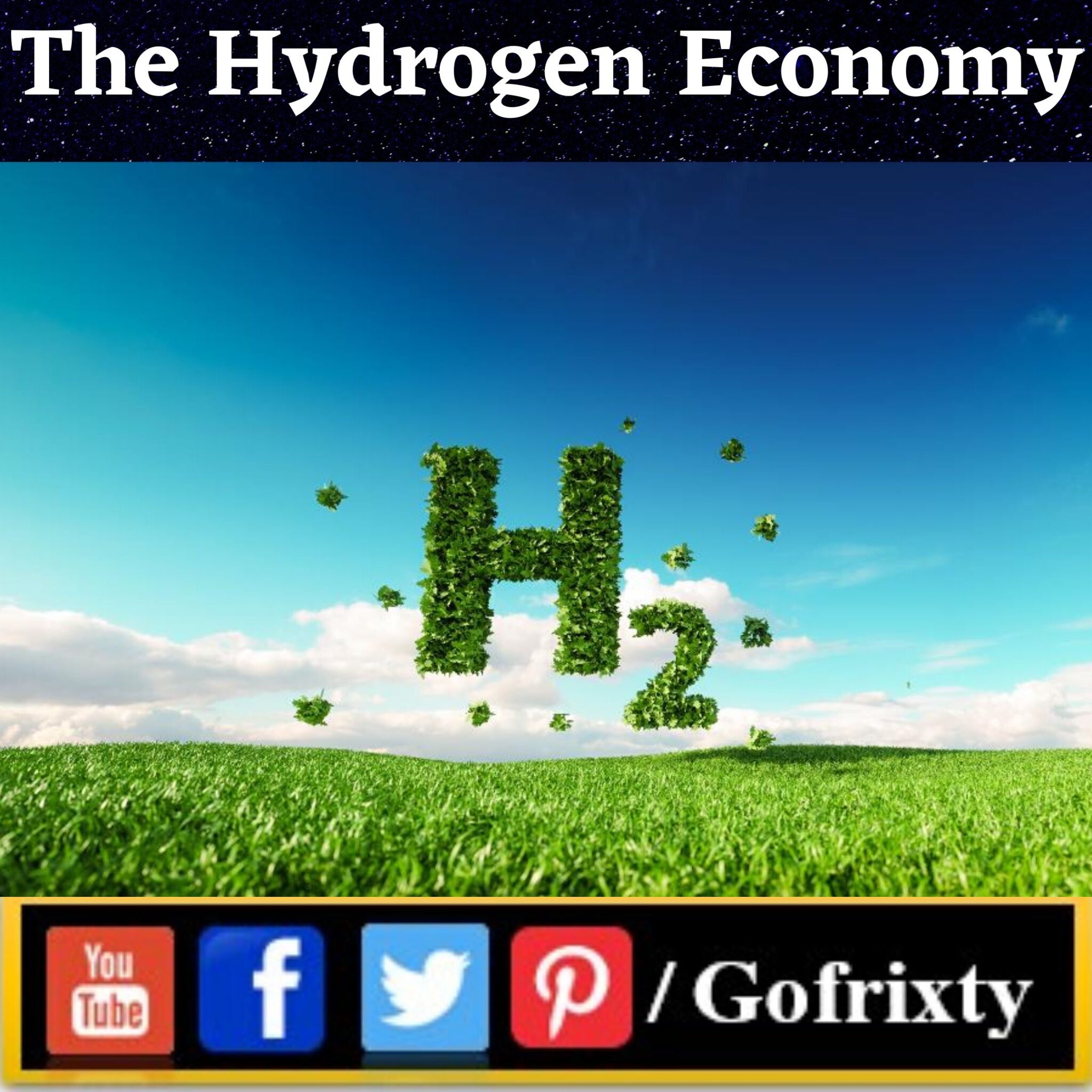The Hydrogen Economy:
Major car manufacturing like Ford, General Motors, Toyota, and Daimler Chrysler are currently embarking on major investments in Hydrogen technology and forging alliances in the process with Shell, BP, and Exxon. Shell launched a new company in 2003- Shell Hydrogen- with an initial budget of $100 million. Buses powered by fuel cells are already in service in Chicago, Vancouver, and Oslo on an experimental basis.
The hydrogen economy, an enlightened industry that would add to the reduction of energy emissions and consumption, as well as bringing new jobs and stimulating economic growth.
The development has been stimulated by:
- Tightening in air quality standards and targets to reduce CO2 emissions in the light of concern over global warming.
- Increase security threat over oil reserves and consequent fluctuations in oil prices.
- The obvious impact of the use of hydrogen fuel cells in a cut in gasoline by up to 100 percent.
Hydrogen is easily made. For example, on a large oil refinery, BP’s Grangemouth in Scotland produces about 150 tonnes of hydrogen a day- enough to fuel 500000 cars. Currently, however, hydrogen is difficult to store and transport. The Daimler Chrysler buses currently being tested are five times more expensive than conventional buses and prices are unlikely to fall until fuel cells can be mass-produced. Pure hydrogen is especially difficult to store as it does not liquefy until its temperature reaches absolute zero and it is highly combustible. Currently, fuel tanks must be bulky and take up considerable space and allow only small distances between refueling. If the technology is to be used in cars it may be necessary to store the gas at around 5000 psi (an average car type store air at around 30 psi). The technology to do this is yet to be developed. To build a low carbon economy, governments, investors, businesses, and consumers will need to sustain change. Consumers will need to lobby the government (green votes) and engage in green purchasing.
What are the likely implications for this development?
- Car manufacturers.
- Major oil companies like BP, Shell.
- The countries of Saudi Arabia, Qatar, and the UAE.
The incipient hydrogen economy is currently undergoing expeditious development, engendering massive impact investment opportunities throughout the value chain.
In this eco-system, hydrogen is utilized as an incipient, emission-free energy source, fuel, and energy carrier, as well as an emission-free feedstock in industrial engendered processes.
These developments are paving the way for incipient utilizations of hydrogen, in applications ranging from mobility to heating, providing a pathway to plenarily decarbonize them.
Hydrogen could supersede oil and gas. It will be increasingly engendered from renewable puissance, providing a way to store clean energy at an immensely colossal scale and contributing to the perpetuated development of renewable energy solutions.
The Hydrogen Economy: Implicative Insinuations
The transition from a petroleum-predicated energy system to a hydrogen economy requires constructing many incipient hydrogen plants and fueling stations. The incipient infrastructure must accommodate the emerging demand for hydrogen, and meanwhile, utilize the subsisting infrastructure, such as gas pipelines and railroads, to minimize the distributed price.
Early ingression of a concrete hydrogen technology might dominate the market if the infrastructure is established to accommodate it. For example, if natural gas becomes the ascendant fuel for hydrogen engendering, a more consummate network of pipelines could be built to facilitate conveying gas and manufacturing hydrogen. Both coal and biomass could be gasified and carried via this network. Under such a scenario, technology learning could further lower the cost of engendering hydrogen and make gas-predicated hydrogen technology the ascendant one. Alternatively, railroads, gas pipelines, biomass amassment systems, nuclear thermochemical, and solar thermochemical could be developed in regional markets where these energy sources are economically propitious. Technology lock-in under this scenario is less likely.
1. Car manufacturers
Car manufacturers need to invest more in hydrogen predicated economy. They require to consummately divert to these incipient cars technology so that the abundance of hydrogen gas car make it more facile for buyer and seller.
2. Oil companies
Oil companies can play a vital role to make the hydrogen economy blossom. They require to make more allotment of mazuma to make the Hydrogen economically stable so that the more resources of hydrogen reservoirs are utilized and discovered.
3. Oil affluent countries
Oil affluent countries need to transmute their priorities. They require to shift to a hydrogen economy and make them stable through it. Contrary, oil manufacturing countries can still keep their stake in the world economy of petroleum and beat the hydrogen economy if they make the prices of petroleum down if they continually engage in making the world green so to stop gasses deplorable effects. They need to more openly participate in issues that are currently facing by people during their utilization.
Results
The transition from a petroleum-predicated energy system to a hydrogen economy will minimize the demand for petroleum, lower oil prices, and abbreviate crude oil throughputs into petroleum refineries. Energy security will amend as sources become more diversified. Emissions of carbon dioxide withal are projected to decline because of drastic amendments in fuel efficiency in the convey sector. A very consequential finding is that the value of gasoline will decline as the authoritative ordinance for it decrements. However, the value of other petroleum products will increment in the energy system because their supply will fall with lower refinery throughout the world.
Follow Gofrixty for more academic insight and news updates.





Well sooner or later they have to do this if things are managed carefully.This could be a good move…
[…] minimum wage laws. MW can vary state-to-state or region-to-region depending on the stability of the formal economy and grand domestic productivity. Like, currently, the minimum wage set by the federal bodies of […]